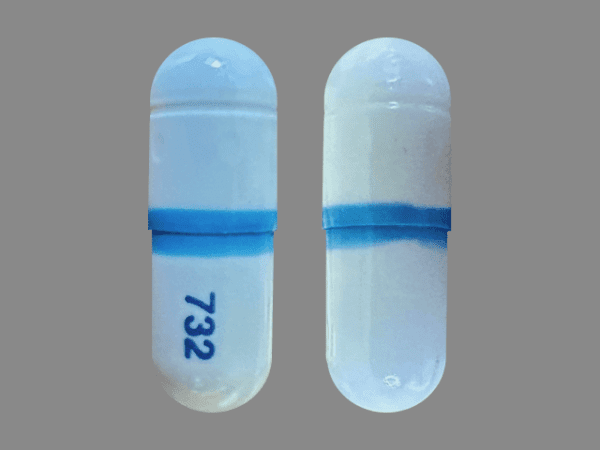Omeprazole / Sodium Bicarbonate Dosage
Medically reviewed by Drugs.com. Last updated on Nov 15, 2023.
Applies to the following strengths: 20 mg-1100 mg; 40 mg-1100 mg; 20 mg-1680 mg; 40 mg-1680 mg; 2 mg-84 mg/mL
Usual Adult Dose for:
- Duodenal Ulcer
- Gastric Ulcer
- Gastroesophageal Reflux Disease
- Erosive Esophagitis
- Gastrointestinal Hemorrhage
Additional dosage information:
Usual Adult Dose for Duodenal Ulcer
Omeprazole 20 mg orally once a day
- Duration of therapy: 4 weeks
Comment: If patients are not healed after 4 weeks, treatment for another 4 weeks may be considered.
Use: Short-term treatment of active duodenal ulcer
Usual Adult Dose for Gastric Ulcer
Omeprazole 40 mg orally once a day
- Duration of therapy: 4 to 8 weeks
Use: Short-term treatment of active benign gastric ulcer
Usual Adult Dose for Gastroesophageal Reflux Disease
Omeprazole 20 mg orally once a day
- Duration of therapy: Up to 14 days (Over-the-Counter [OTC] formulations); Up to 4 weeks (prescription formulations)
Comments:
- The OTC formulation course of treatment may be repeated every 4 months as necessary.
- The full effect of treatment may not be reached for up to 4 days.
Uses:
- Treatment of symptomatic gastroesophageal reflux disease (GERD) without esophageal erosions (prescription formulations)
- Treatment of frequent heartburn occurring at least 2 days a week (OTC formulations)
Usual Adult Dose for Erosive Esophagitis
Treatment: Omeprazole 20 mg orally once a day
- Duration of therapy: 4 to 8 weeks
Maintenance: Omeprazole 20 mg orally once a day
Comments:
Controlled studies for the efficacy in treatment of erosive esophagitis did not extend beyond 8 weeks.
- An additional 4 to 8-week course of therapy may be considered in patients with a recurrence of erosive esophagitis or GERD symptoms after initial treatment.
- Controlled studies for maintenance therapy did not extend beyond 12 months.
Uses:
- Short-term treatment of erosive esophagitis diagnosed by endoscopy
- Maintenance of healing of erosive esophagitis
Usual Adult Dose for Gastrointestinal Hemorrhage
Oral suspension: Omeprazole 40 mg orally, followed by 40 mg 6 to 8 hours later, and 40 mg orally once a day thereafter
- Duration of therapy: 14 days
Comment: Controlled studies did not extend past 12 months.
Use: Reduction of risk of upper gastrointestinal bleeding in critically ill patients
Renal Dose Adjustments
No adjustment recommended.
Liver Dose Adjustments
Use should be avoided, especially in patients undergoing maintenance regimens for the healing of erosive esophagitis.
Dose Adjustments
Asian patients: Use should be avoided, especially in patients undergoing maintenance regimens for the healing of erosive esophagitis.
Precautions
CONTRAINDICATIONS:
- Hypersensitivity to the active components, substituted benzimidazoles, or any of the ingredients
- Patients receiving rilpivirine-containing products (prescription formulations)
Safety and efficacy have not been established in patients younger than 18 years.
Consult WARNINGS section for additional precautions.
Dialysis
Data not available
Other Comments
Administration advice:
- This drug should be taken on an empty stomach at least 1 hour before a meal. The capsule should be swallowed whole, without chewing or crushing; patients should not open the capsule to sprinkle the contents into food or other liquids.
- Patients receiving continuous nasogastric/orogastric tube feeding should stop feeding 3 hours before and 1 hour after taking this drug.
Reconstitution/preparation techniques:
- The manufacturer product information should be consulted.
Storage requirements:
- The manufacturer product information should be consulted.
General:
- The dose of sodium bicarbonate is the same in the 20 and 40 mg formulations; thus, two 20 mg capsules/packets are not equivalent to a single 40 mg capsule/packet. The manufacturer product information should be consulted for more information on sodium content.
Monitoring:
- METABOLIC: Magnesium levels, especially in patients taking other drugs that could result in hypomagnesemia or those on long-term therapy; Vitamin B12 levels, especially in patients on long-term therapy
- MUSCULOSKELETAL: Bone fractures, especially in patients at high-risk for osteoporosis-related events
Patient advice:
- Patients should be advised that use is not intended for immediate relief. Patients may not experience full effects for up to 4 days.
- If using this drug to treat H pylori, tell patients that it is important to complete the full regimen.
- Instruct patients to seek medical attention if signs/symptoms of hypersensitivity, Clostridium difficile, or systemic cutaneous lupus erythematosus occur.
- Inform patients that this drug may cause drowsiness, dizziness, vertigo, and/or visual disturbances. They should avoid driving or operating machinery until the full effects of the drug are seen.
- Advise patients to speak to their healthcare provider if they become pregnant, intend to become pregnant, or are breastfeeding.
More about omeprazole / sodium bicarbonate
- Check interactions
- Compare alternatives
- Pricing & coupons
- Reviews (40)
- Drug images
- Side effects
- During pregnancy
- Drug class: proton pump inhibitors
- En español
Patient resources
Other brands
Zegerid, Konvomep, Zegerid OTC
Professional resources
- Omeprazole and Sodium Bicarbonate prescribing information
- Omeprazole and Sodium Bicarbonate Capsule (FDA)
Other brands
Zegerid, Konvomep, Zegerid OTC
Related treatment guides
See also:
Further information
Always consult your healthcare provider to ensure the information displayed on this page applies to your personal circumstances.


